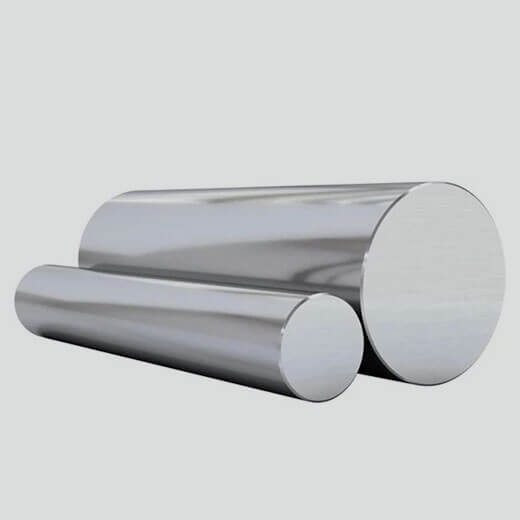When it comes to engineering, manufacturing, or construction projects, choosing the right materials is crucial for success. One such vital material is the precision round bar—a fundamental component used across various industries including automotive, aerospace, machinery, and more. Selecting the appropriate precision round bar can directly influence the efficiency, durability, and quality of your final product.
This comprehensive guide will walk you through everything you need to know about precision round bars, how to select the right one for your specific project needs, and tips on finding reliable Precision Round Bars Suppliers, especially in India, which is emerging as a global hub for quality steel products.
What Are Precision Round Bars?
Precision round bars are cylindrical metal rods manufactured with tight dimensional tolerances and smooth surface finishes. Unlike standard round bars, precision bars undergo additional machining and grinding processes to achieve higher accuracy and superior surface quality.
These bars are used where precise dimensions and surface smoothness are critical, such as in mechanical shafts, automotive components, and high-precision instruments.
Key Characteristics:
-
High dimensional accuracy: Tolerances are typically within ±0.01 mm or better.
-
Smooth surface finish: Reduced need for additional machining.
-
Consistency in diameter: Maintains uniform diameter along the entire length.
-
Material variety: Available in steel, stainless steel, aluminum, and other alloys.
Why Choosing the Right Precision Round Bar Matters
Using the wrong precision round bar can lead to multiple issues such as:
-
Poor fit and finish
-
Premature wear and failure of components
-
Increased production costs due to rework
-
Compromised safety and performance of the final product
Selecting the right precision round bar ensures:
-
Optimal performance of machinery or equipment
-
Cost efficiency by minimizing waste and machining time
-
Longer lifespan of components
-
Compliance with industry standards
Factors to Consider When Choosing a Precision Round Bar
Choosing the right precision round bar involves evaluating various technical and practical factors based on your project’s unique requirements.
1. Material Type and Grade
The choice of material impacts the bar’s strength, corrosion resistance, machinability, and cost. Common materials include:
-
Carbon Steel: Offers good strength and is cost-effective for general use.
-
Alloy Steel: Enhanced mechanical properties for demanding applications.
-
Stainless Steel: Superior corrosion resistance, ideal for food, medical, and marine industries.
-
Aluminum: Lightweight and corrosion-resistant, suitable for aerospace and automotive.
-
Brass and Copper: Used for electrical conductivity and aesthetic purposes.
Always check the material grade specifications to ensure compatibility with your operating environment.
2. Dimensional Tolerances and Size
Precision round bars come in various diameters and lengths. The tolerance level you require depends on:
-
The function of the part being manufactured.
-
The assembly fit required (e.g., slip fit, interference fit).
-
Machining capabilities available in your workshop.
If your project demands ultra-precise components, ensure the bar meets tight tolerance standards.
3. Surface Finish Quality
The surface finish affects the bar’s performance, particularly in moving parts where friction is a concern. Precision round bars usually have a smooth surface finish which reduces wear and tear.
When selecting, verify:
-
Surface roughness parameters.
-
Any additional coating or treatment required (e.g., heat treatment, plating).
4. Mechanical Properties
Consider mechanical properties like:
-
Tensile strength
-
Yield strength
-
Hardness
-
Ductility
These properties depend largely on the material grade and heat treatment. Ensure the precision round bar matches the mechanical stress your application will endure.
5. Length and Straightness
Length can vary depending on supplier capabilities. For large-scale production, uniform length bars reduce waste.
Straightness is equally critical to avoid alignment issues in assembly lines.
6. Cost and Availability
Cost is often a deciding factor but should never compromise quality. It’s important to balance cost with the supplier’s reliability and the bar’s performance.
Availability, lead time, and after-sales support are essential when dealing with bulk orders.
How to Find Reliable Precision Round Bars Suppliers
Once you understand your technical requirements, sourcing from trustworthy precision round bars suppliers becomes the next step. Here are tips to find the right supplier:
1. Verify Quality Certifications
Look for suppliers with recognized certifications such as:
-
ISO 9001 (Quality Management Systems)
-
ASTM standards compliance
-
Material test certificates (MTC)
These certifications ensure the bars meet international quality standards.
2. Assess Manufacturing Capabilities
Top suppliers invest in modern manufacturing technologies like CNC grinding machines and quality control equipment. This ensures consistent product quality and precise tolerances.
3. Check Product Range and Material Options
A good supplier should offer a wide variety of precision round bars in multiple materials and sizes to suit different projects.
4. Customer Reviews and References
Reputation matters. Seek reviews from other clients or ask the supplier for references. Reliable suppliers maintain long-term relationships with satisfied customers.
5. Location Considerations: Why Choose Precision Round Bars Suppliers in India?
India is increasingly becoming a preferred sourcing destination due to:
-
Competitive pricing
-
Access to high-quality raw materials
-
Skilled labor and advanced manufacturing facilities
-
Efficient logistics networks for timely delivery
Choosing precision round bars suppliers in India offers a balance of cost and quality, especially for global projects.
Applications of Precision Round Bars
Understanding where precision round bars are commonly used can help you make an informed choice based on industry standards.
Automotive Industry
Used in shafts, axles, gears, and other critical engine components.
Aerospace Industry
Required for high-strength, lightweight parts with extreme dimensional accuracy.
Industrial Machinery
Essential for manufacturing shafts, pins, and rollers that demand durability and precision.
Medical Equipment
Used in surgical tools and implants requiring corrosion resistance and high finish quality.
Conclusion
Choosing the right precision round bar is a critical step that influences your project’s success from both quality and cost perspectives. Understanding the technical requirements—material, size, tolerance, surface finish, mechanical properties—and sourcing from dependable precision round bars suppliers, particularly those offering competitive options like precision round bars suppliers in India, will ensure your project performs optimally.
